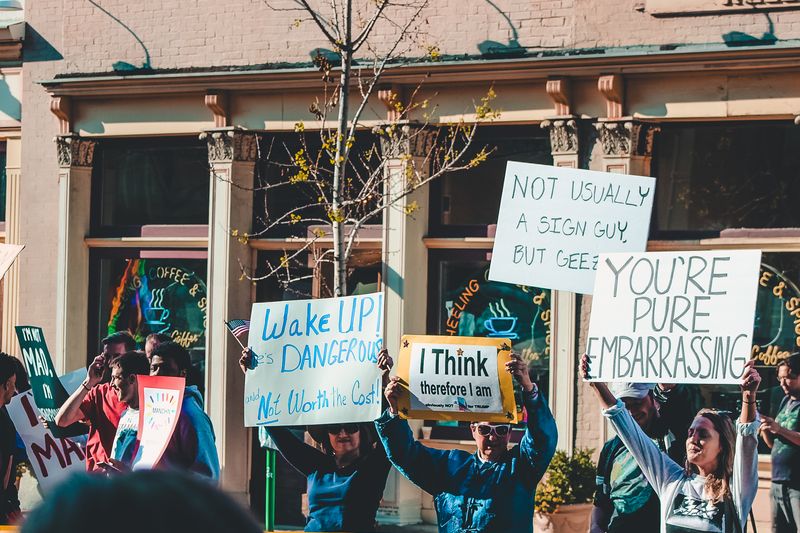France Rocked by Protests Following Fatal Police Shooting of Teen
France has been engulfed in a wave of protests and unrest following the fatal police shooting of a 17-year-old teenager, known only as Nahel, in the Paris suburb of Nanterre. The incident, captured on video, has reignited longstanding grievances about policing and racial profiling in France‘s low-income and multiethnic suburbs. The protests, which have now spanned three nights, have seen widespread violence, with cars torched, shops ransacked, and hundreds arrested. French President Emmanuel Macron has condemned the violence, calling it an “unacceptable situation” and emphasizing that “nothing justifies violence.” However, despite a massive security deployment and measures to restore calm, the unrest continues.
The Issue of Policing and Racial Profiling in France
This tragic incident has once again brought to the forefront the issue of policing and racial profiling in France. France‘s low-income and multiethnic suburbs have long been plagued by a sense of marginalization and discrimination, leading to tensions with law enforcement. The protests following Nahel’s shooting reflect the deep-seated anger and frustration felt by many in these communities.
Racial profiling, the practice of targeting individuals based on their perceived race, ethnicity, or nationality, is a deeply troubling issue that needs to be addressed. It not only undermines trust between communities and law enforcement but also perpetuates systemic inequalities and discrimination. The French government must take concrete steps to address and rectify this issue.
Necessity for Police Reform
These protests should serve as a wake-up call for the French government to initiate meaningful police reform. It is imperative to establish mechanisms that hold law enforcement officers accountable for their actions and ensure that they are properly trained to handle situations without resorting to excessive force.
Additionally, efforts must be made to diversify law enforcement agencies to better reflect the communities they serve. This can help foster trust and understanding between police officers and the communities they work in, ultimately leading to more effective and fair policing.
The Instrumentalization of Tragedy: Navigating the Fine Line
President Macron’s condemnation of the protests and his statement about the “unacceptable instrumentalization of the death of a teenager” raises an important philosophical question about the fine line between genuinely expressing grief and anger over an incident and exploiting it for political or personal gains.
While it is essential to honor Nahel’s memory and address the underlying issues that contributed to his tragic death, it is equally crucial to ensure that protests remain peaceful and focused on constructive dialogue. Any act of violence or destruction only detracts from the real issues at hand and undermines the possibility of meaningful change.
Importance of Peaceful Assembly
The United Nations’ human rights office has emphasized the importance of peaceful assembly and called for allegations of disproportionate use of force by law enforcement to be swiftly investigated. Peaceful protests can be a powerful tool for drawing attention to systemic injustices and advocating for change. It is crucial for protesters to exercise their rights responsibly, engaging in peaceful demonstrations that promote dialogue and understanding rather than resorting to violence.
A Fresh Challenge for President Macron
These protests pose a fresh challenge for President Macron, who had been seeking to move past previous waves of demonstrations sparked by controversial policies. The events surrounding Nahel’s shooting highlight the need for Macron and his government to address the deep-rooted issues of racism and discrimination in law enforcement.
Macron’s call for calm is essential, but it must be accompanied by concrete action. The government needs to engage in a meaningful dialogue with protest leaders and representatives from affected communities, taking their concerns into account and working together to find lasting solutions.
Learning from Past Mistakes
The French government must heed the lessons learned from previous episodes of unrest, such as the 2005 urban riots that followed the deaths of two boys of African origin in a police chase. It cannot afford to ignore the underlying causes of the current protests and must act swiftly and decisively to prevent further escalation.
Restoring Trust in Institutions
Building trust between communities and law enforcement is crucial for maintaining peace and social cohesion. The French government must invest in initiatives that foster understanding, cooperation, and dialogue among all stakeholders. This includes providing resources for community programs, education initiatives, and efforts to address economic and social inequalities that contribute to feelings of marginalization.
Moving Forward: Seeking Justice and Healing
As France grapples with these protests, it is essential to remember the loss of a young life and the grieving family who now must endure further pain and anguish. The officer responsible for Nahel’s death has been detained and charged with voluntary manslaughter. A thorough and transparent investigation should be conducted to ensure that justice is served.
Additionally, the government should prioritize providing support and counseling services to Nahel’s family and affected communities. Healing and reconciliation must be central to the response to these tragic events, with a focus on preventing further loss of life and addressing the underlying issues that have led to these protests.
In conclusion, France finds itself at a critical juncture, grappling with deep-seated issues of policing, racial profiling, and social inequalities. The protests following Nahel’s shooting demand immediate attention and action from the government. By acknowledging and addressing the underlying causes, engaging in constructive dialogue, and implementing meaningful reforms, France can strive toward a more inclusive and just society.

<< photo by Rosemary Ketchum >>
The image is for illustrative purposes only and does not depict the actual situation.
You might want to read !
- “CONCACAF Clash: Mexico vs. Haiti Live Stream – Who Will Secure Victory?”
- Exploring the Mysteries of The Witcher Season 3: Unanswered Questions Revealed
- The Aspartame Debate: Exploring the Presence of this Controversial Ingredient in Everyday Food Products
- Vladimir Putin’s Troubles: Analyzing the Extent of the Crisis
- “The Current State of LGBTQ+ Pride in Russia: An Ongoing Struggle for Equality”
- Concerns about LGBTQ Rights Take Center Stage at NYC Pride March
- The Ideal Fit: Reilly Smith as Jason Zucker’s Replacement
- The Connor Bedard Effect: Chicago Buzzing Ahead of the NHL Draft 2023
- The Bruins’ Bold Move: Trading Taylor Hall to the Blackhawks for Salary Cap Relief
- “Examining the Accountability of School Resource Officers: Analyzing the Scot Peterson Verdict”
- Exploring the Impact of Sleep Apnea on President Biden and its Treatment
- “Raging Diamond Fire Engulfs Scottsdale, Puts Homes at Risk”
- The Complex World of Chao Fah Sein: Exploring the Enigmatic Character in Jack Ryan Season 4
- “Addressing Backlash: Dylan Mulvaney Responds to Controversy Surrounding Bud Light Partnership”
- Dylan Mulvaney’s Candid Response to Bud Light Controversy: A Reflection on Free Speech and Corporate Accountability
- “Exploring the Impending Clash: Analyzing Mexico vs. Haiti Odds and Prediction for the 2023 Gold Cup”
- “Editorial Exploration: Liz Cheney’s Provocative Remarks on American Voters and ‘The View’s’ Reaction”
- Editorial Exploration: Exploring the Legacy of Superman That David Corenswet and Rachel Brosnahan Bring to the Iconic Character
Title of the Article: “Superman: Legacy Explored Through David Corenswet and Rachel Brosnahan’s Casting”
- Editorial Exploration: Analyzing Mexico’s Dominant Performance in the Gold Cup 2023 against Honduras
Title: Mexico’s Commanding Display: Breaking Down the Goals and Highlights of the 4-0 Victory over Honduras in the Gold Cup 2023




